Anti Bullying Week – Best ideas, activities & resources for 2025

Get involved with Anti Bullying Week in your school with this collection of excellent resources for primary and secondary…

- by Teachwire
- Classroom expertise and free resources for teachers
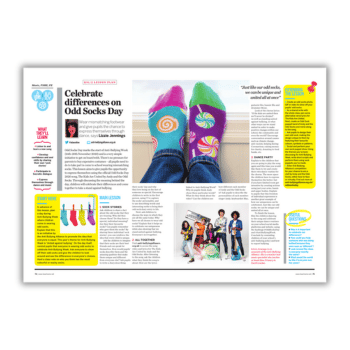
Each of us has a role in preventing and tackling bullying in schools, whether you’re a teacher, governor, or pupil. Take a stand against bullying and support children’s individuality with these Anti-Bullying Week resources and ideas…
What is Anti-Bullying Week?
Anti Bullying Week is an event coordinated by the Anti-Bullying Alliance – a coalition of organisations and individuals working together to stop bullying.
In 2023, 80% of schools marked the week, reaching over 7.5 million children.
When is Anti-Bullying Week 2025?
Anti-Bullying Week 2025 takes place between Monday 10th and Friday 14th November.
What is the Anti-Bullying Week 2025 theme?
2025’s theme is ‘Power for Good’ – with the aim of empowering children to safely speak up and raise awareness when they see bullying, face-to-face or online.
Anti-Bullying Week resources
Official resources
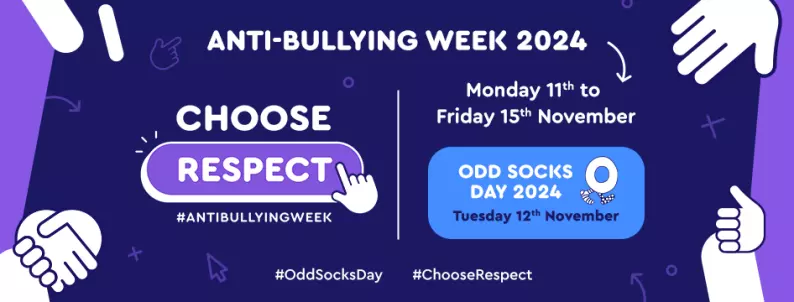
Find the official Anti Bullying Week school resources for 2025 here. There are also tools and advice on if you’re being bullied, advice for parents, and much more.
‘Choose respect’ football-themed resources
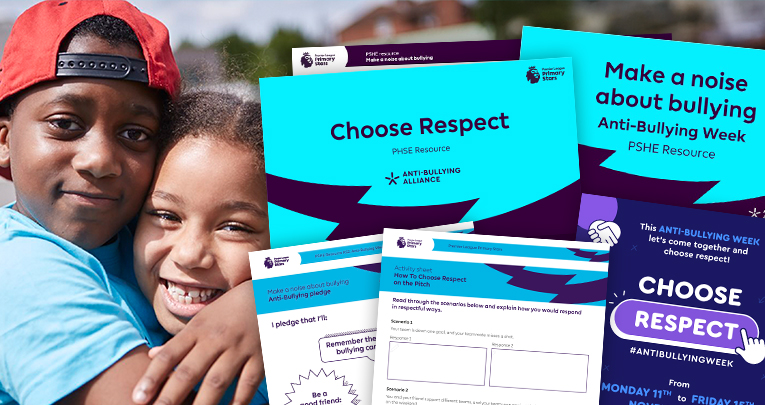
Explore this year’s theme of ‘Choose respect’ with this free KS2 pack from Premier League Primary Stars. The football-themed lessons use the sport’s appeal to inspire meaningful classroom conversations, encourage reflection on behaviour, and promote respectful relationships.
Odd Socks Day activities primary lesson plan
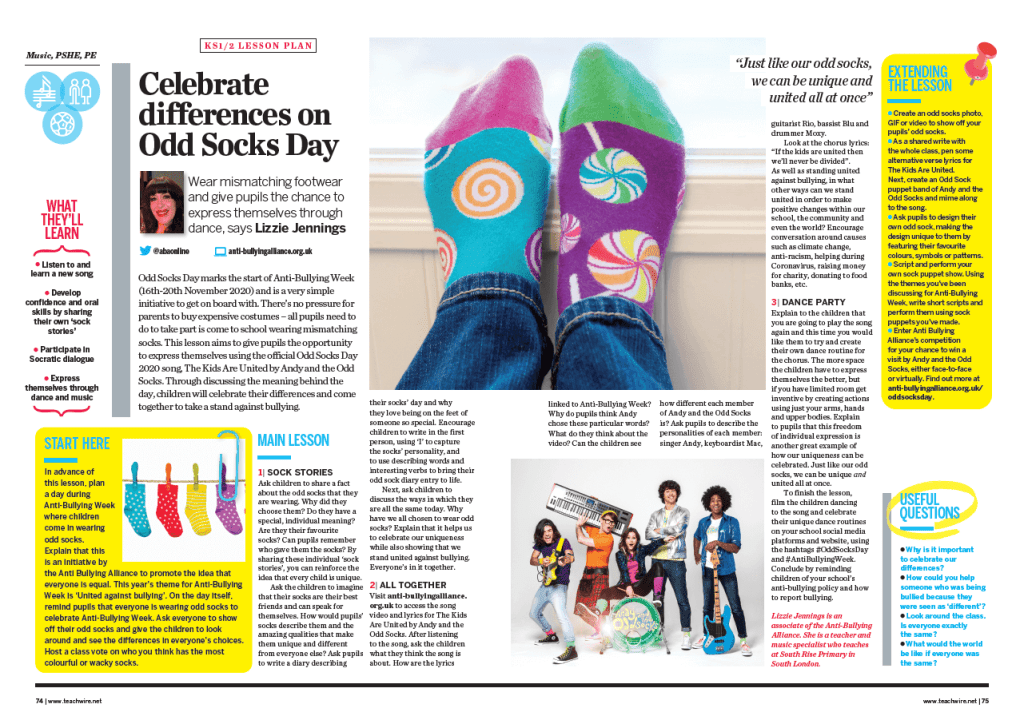
Anti-Bullying Week incorporates Odd Socks Day on Tuesday 12th November 2024. This is designed to be a fun opportunity for children to express themselves and celebrate their individuality and what makes us all unique.
All they have to do to take part is wear odd socks to school, it couldn’t be simpler! The aim is simply to help raise awareness around anti-bullying, and hopefully raise some money to help the charity.
These Anti-Bullying Week activities by Lizzie Jennings, associate of the Anti-Bullying Alliance are suitable for KS1 and KS2. The lesson plan is focused on official Odd Socks Day song, The Kids Are United, by Andy Day’s Odd Socks band.
Through discussing the meaning behind the day, children will celebrate their differences and learn the power of coming together to take a stand against bullying.
School of Kindness assembly
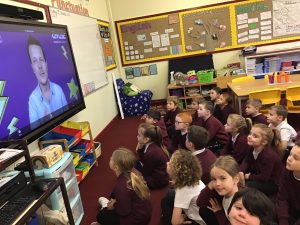
School of Kindness is hosting a virtual World Kindness Day assembly on Wednesday 13th November 2024. Last year more than 71,000 children took part. Register your interest here.
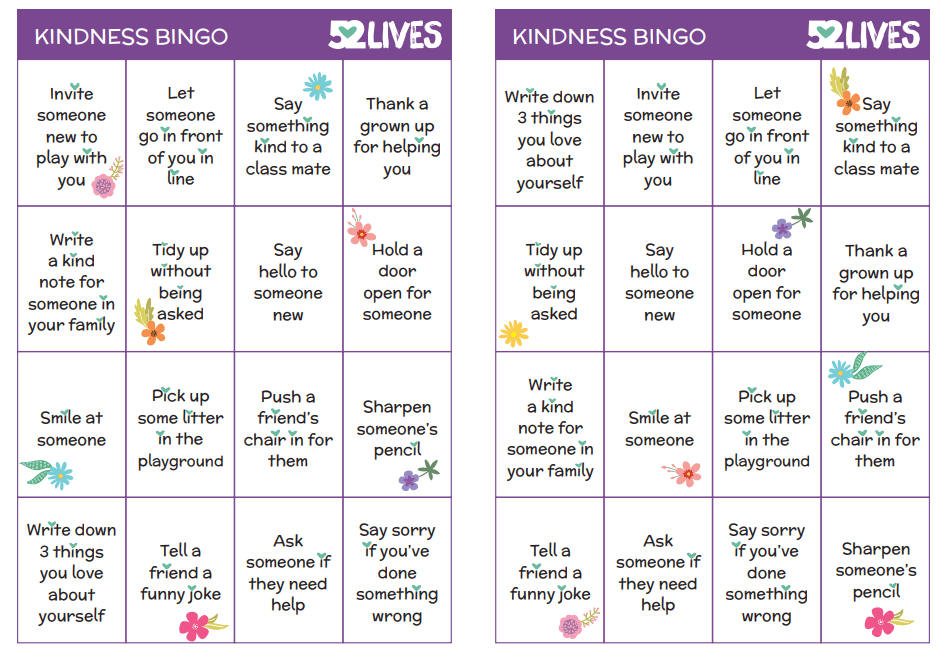
There’s also a lovely Kindness Bingo resource that you can print off and hand out for children to complete, plus a free World Kindness Day pack filled with fun activities for KS1 and KS2.
PSHE podcast that teaches kindness
The Rez is a sci-fi adventure for KS2 that you can access via a podcast, comic book and game-based website. The PSHE Association has accredited the accompanying classroom resources.
Episodes Krispy’s Kaos! and Kazoo You? explore what children can do if they think their friend is being a bully.
Martha Evans, director of The Anti-Bullying Alliance, says: “Developing empathy and encouraging kindness can make a big difference when it comes to bullying, so resources that support teachers to bring this into their classroom are extremely valuable.”
Free CPD online training
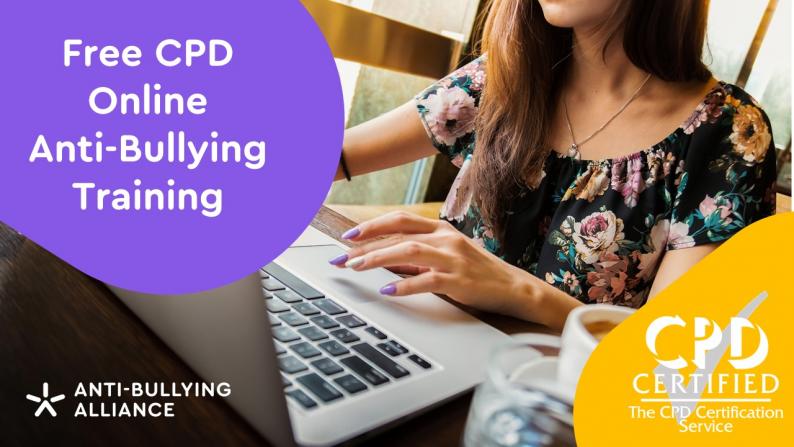
Browse the Anti-Bullying Alliance’s library of free CPD-certified anti-bullying online training for anyone that works with children. Topics include:
- Ten principles to reduce bullying
- Responding to bullying
- Bullying and SEN
Ditch the Label anti-bullying resources
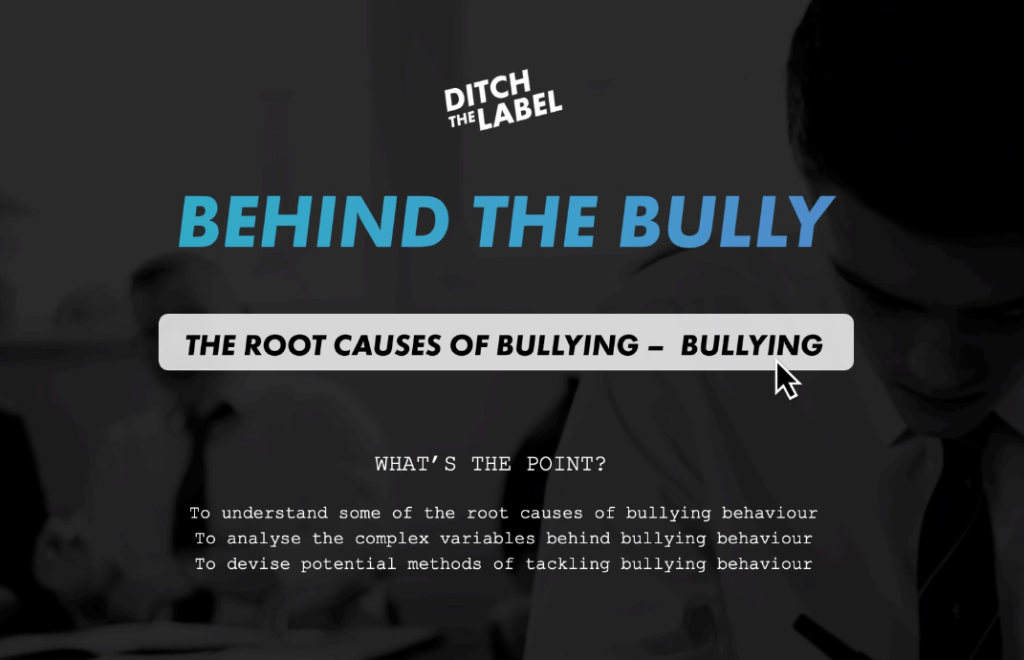
Ditch the Label provides free PSHE education resources to combat bullying, mental health stigma and unconscious bias. Its bullying module for secondary pupils looks at some of the root causes of bullying and helps students to reflect on the role they can play in tackling bullying. The included lessons are:
- Behind the bully
- Banter or bullying?
- What you looking at?
- Am I normal?
- And relax…
- Who will you be?
Exploring why bullying occurs lesson plan

You’re never too old to learn more about how your words and actions affect others. Rachel Summers has put together some inspiring activities to help KS4 pupils improve their empathy skills. You will cover:
- The places where bullying can happen thoughtlessly
- How by turning a blind eye to bullying, you become complicit in it
- The ways in which we can stop bullying and create an anti-bullying culture
Anti-bullying drama workshops
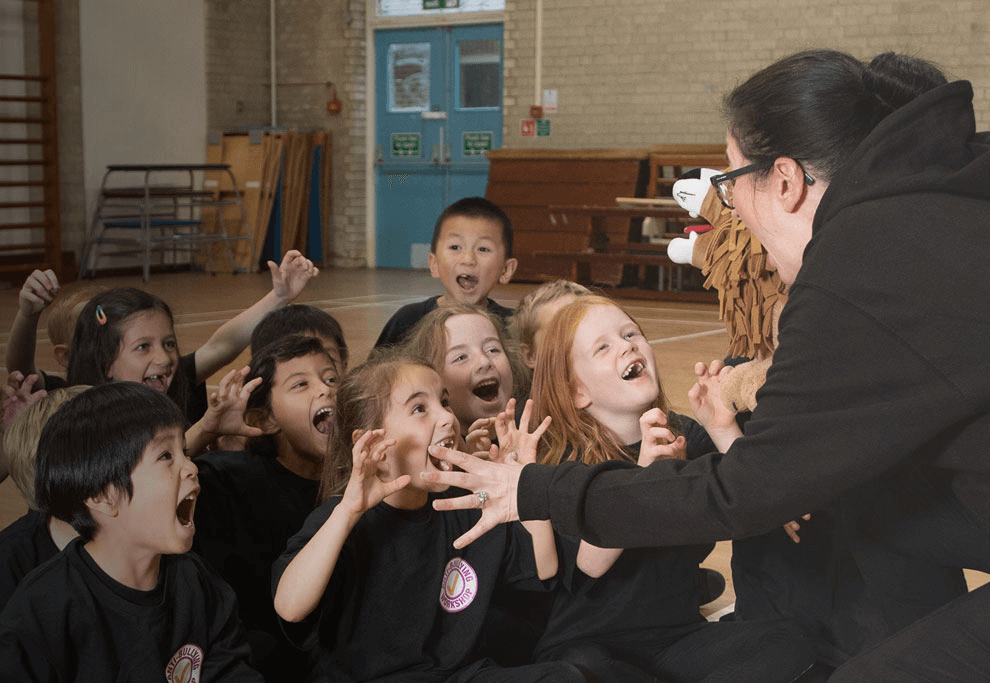
These Anti-Bullying Workshops have been delivered to thousands of KS1 and KS2 children and their teachers since 2006. They offer effective strategies for helping pupils tackle bullying in all its forms.
For KS1 there is a Friendship Workshop, while for KS2 there is a selection of workshops covering different anti-bullying topics such as cyberbullying, how language can hurt and, of course, Anti-Bullying Week.
Tackling disability-related bullying
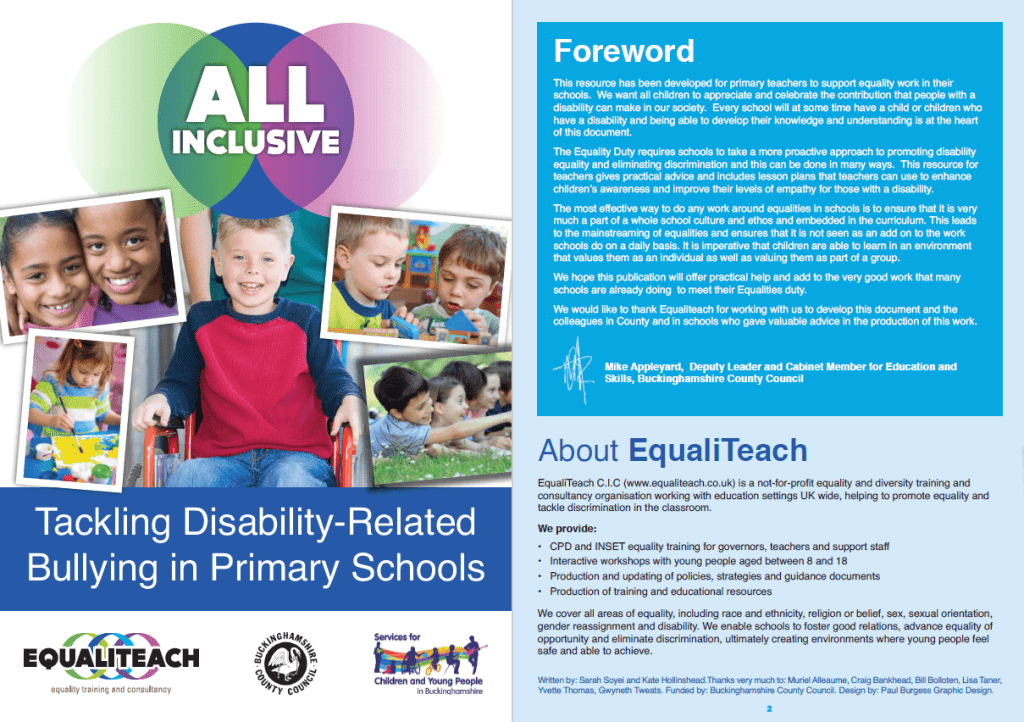
This resource has been developed for primary teachers to support equality work in their schools, so that all children can appreciate and celebrate the contribution that people with a disability can make in our society.
It gives practical advice and includes lesson plans that you can use to enhance children’s awareness and improve their levels of empathy for those with a disability.
Family Lives resources
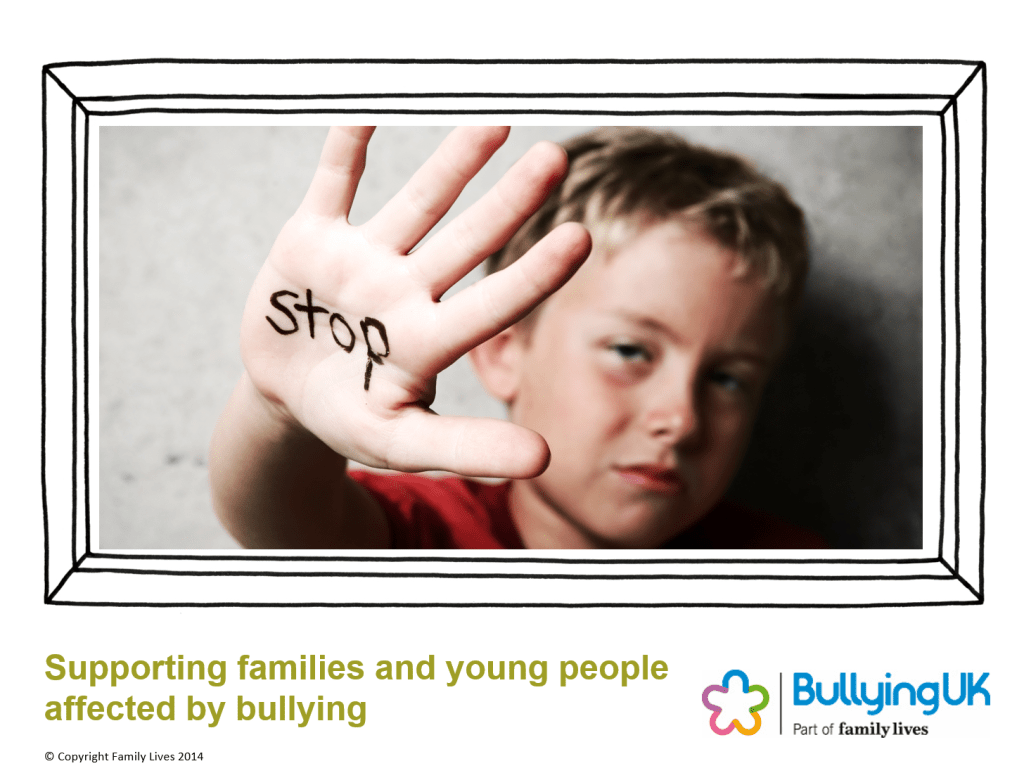
There’s a whole host of free anti-bullying resources on the Family Lives website. Get assembly presentations, posters, flashcards and more. There’s also an advice activity, debate ideas and videos.
Explore bullying through stories
Describing bullies with The BFG
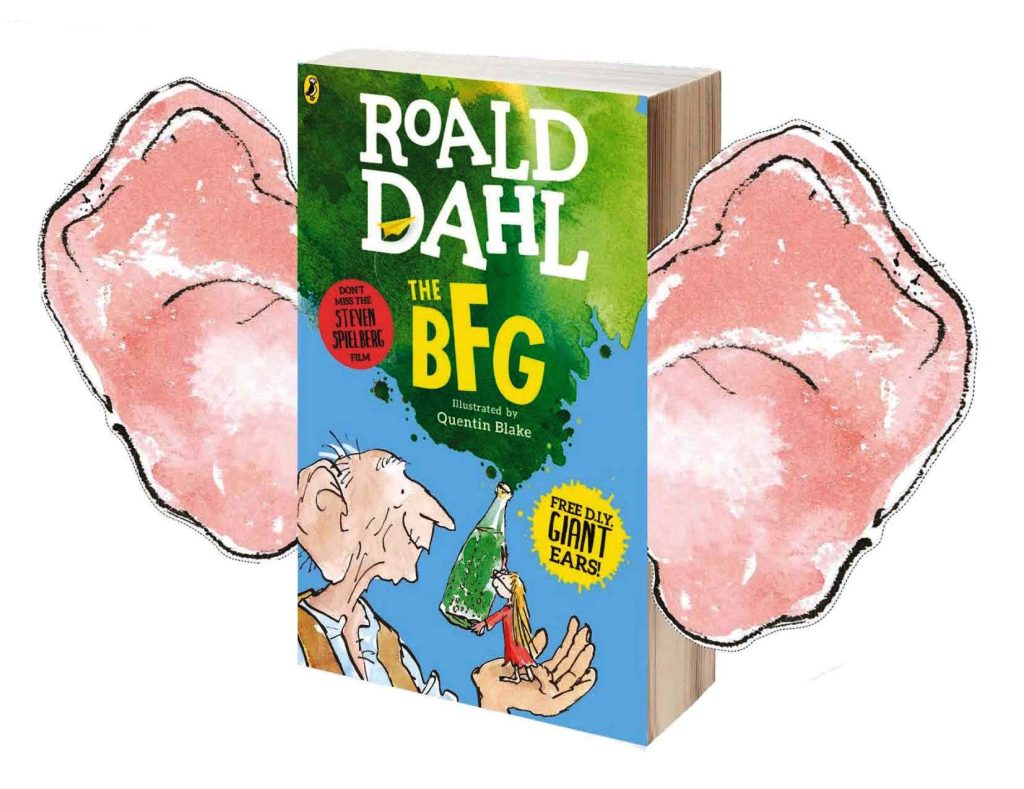
Talk with your class about how we can deal with bullies, then use the activities and worksheets in this KS1 and KS2 Roald Dahl lesson plan to create your own description of a bully that uses similes and metaphors to great effect.
We’re All Wonders
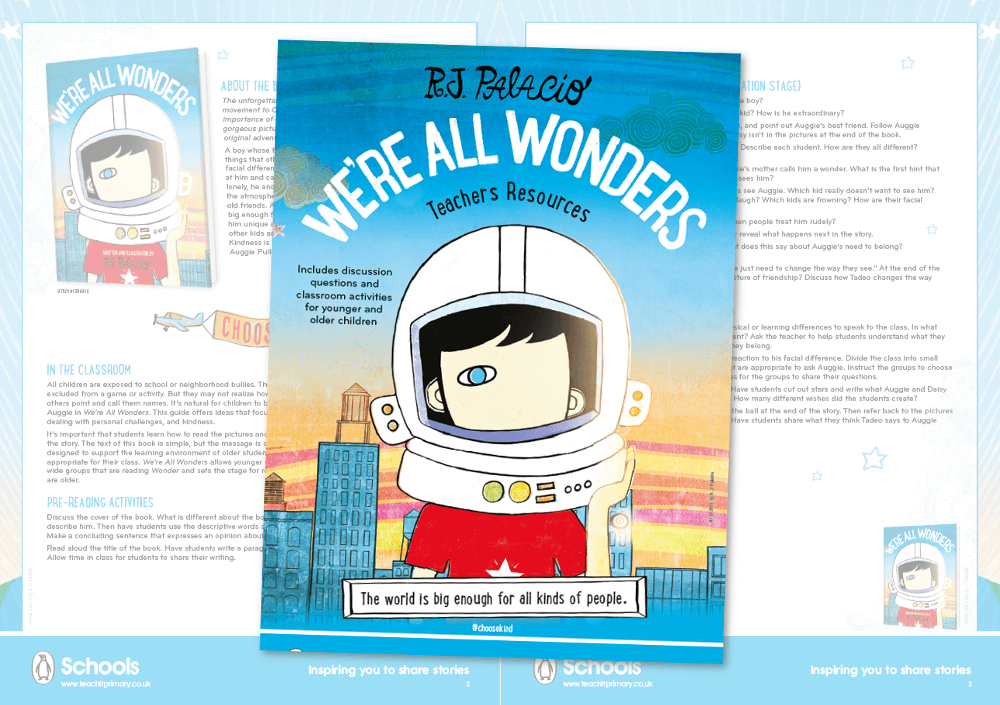
Consider themes of kindness, individual differences, dealing with personal challenges and the need to belong with this teaching and discussion guide for RJ Palacio’s incredible follow-up to Wonder.
The guide includes discussion questions and classroom activities for younger and older primary children, pre-reading notes and the opportunity to become a certified kind classroom.
Diary of a Wimpy Kid
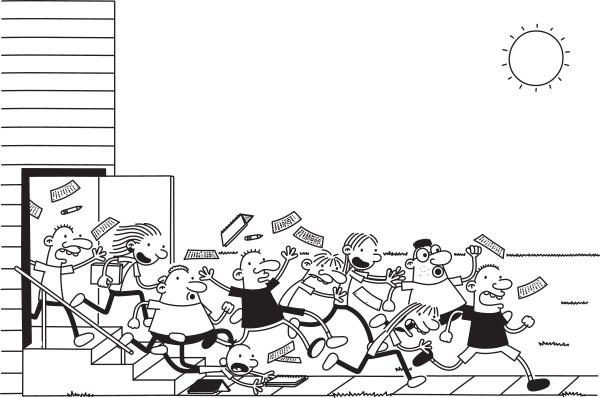
The Diary of a Wimpy Kid books are the perfect companion for reluctant readers. Their comic book format makes them accessible, they’re bursting with laugh-out-loud moments and tackle important themes such as bullying and family life.
These activities will get students excited about the books while developing their literacy skills.
Create a music video
Follow the lead of pupils at Amesbury School in Hindhead, Surrey, and create your own music video for Anti-Bullying Week.
This magnificent example, set to the song Brave by Sara Bareilles, features children aged 10-13 singing, as well as Peter Hannah from the original West End cast of Waitress. Its aim is to encourage children to reach out.
Digiduck’s Big Decision
This story from Childnet is aimed at children aged three to seven and is all about how to be a good friend to others on the internet. There’s also a poster and interactive app available.
Using films to combat bullying
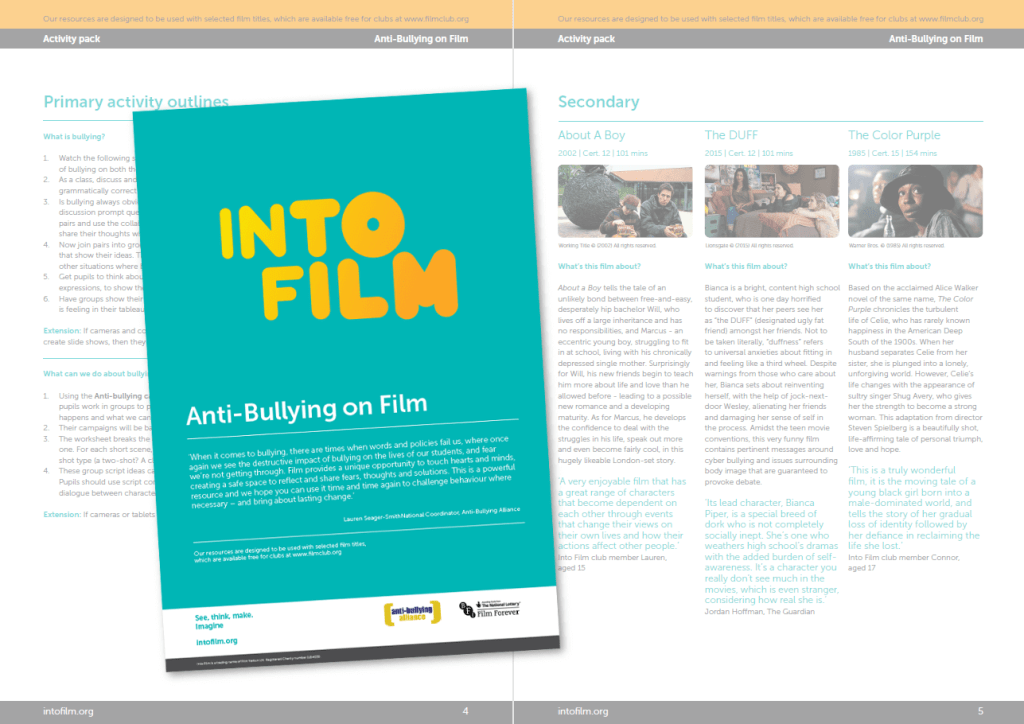
This resource from Into Film will help you continue to explore bullying through film. You’ll also cover related themes such as friendship, standing up for what is right, cyberbullying and the power of groups, both positive and negative.
The download comprises a ten-page guide for teachers, containing activity ideas and accompanying worksheets for primary and secondary learners.
Anti-Bullying Week videos
OpenView Education
OpenView Education has created a series of interactive anti-bullying videos to support schools. Suitable for Early Years to KS2, the videos feature the characters of Milly and Philip.
Use these videos to spark creative discussions with your class. They’re a great way of introducing topics such as:
- Choose Respect – Bullying as a behaviour choice
- Bullying vs Conflict – The difference between bullying and conflict
- Celebrating Difference – Learning why it’s fun to have a friend who is different from us
- Peer Pressure – Understanding Bullying as a group behaviour
BBC bullying videos
The BBC has created a collection of teaching resources for primary and secondary pupils to complement your Anti-Bullying Week programme.
There are animated versions of personal testimonies, stories about what drives someone to become a bully and more.
Diversity Role Models videos
Diversity Role Models has a range of resources available to support schools with celebrating different identities and fostering inclusion and respect, including its multimedia Role Model Stories videos.
It also has an Upstander Animation Series for primary pupils. This is a series of animated videos designed to prompt young people to ‘Pause, Rethink, Rewind, Be Kind’. Each video comes with an accompanying resource pack.
The Bullying Prevention Circle
This award-winning anti-bullying film, called The Bullying Prevention Circle, is perfect for UKS2-KS4. It focuses on what bystanders can do to help bullied and isolated students.
Use the accompanying resource handout to review and expand on the information in the video.
5 ways to tackle bullying
Use these ideas to embrace difference, boost empathy and create an inclusive school environment…
1. Talk about policies
Consult with pupils, staff, parents/carers and governors to identify the key challenges within your community and better understand how you can improve school policies and processes.
This can also help establish a shared vision for tackling and preventing prejudice-based bullying across the whole school community.
Once you’ve reviewed policies and processes, it’s vital you effectively disseminate them so that every member of the school community knows what their role is in implementing the school’s anti-bullying strategies.
We shouldn’t view bullying in isolation. Efforts to tackle and prevent it need to be rooted in your school values. Set time aside to work with young people on ensuring they understand the school polices and their role in tackling prejudice.
“We shouldn’t view bullying in isolation”
2. Prioritise prevention
Research suggests that preventative measures, such as bystander training and programmes focused on empathy building, can have a positive impact in schools.
A recent research and evaluation report from Diversity Role Models and the National Council for Voluntary Organisations (NCVO) found that storytelling workshops, featuring personal stories from volunteer role models that focused on difference, had hugely positive outcomes for young people.
3. Make difference a part of the everyday
The NCVO report revealed that schools that extensively educate pupils about diversity saw significantly lower instances of bullying related to those differences.
Trending
For example, schools in which young people said they regularly learned about LGBTQ+ identities tended to report lower rates of homophobic, biphobic and transphobic bullying.
“Schools that extensively educate pupils about diversity saw significantly lower instances of bullying”
One of the ways teachers can introduce diverse identities and a positive representation of difference into the classroom is through ‘usualising’.
When you usualise, you familiarise pupils with the presence of diverse identities in society and take away the threat of difference which can create fear and motivate bullying.
4. Examine the impact of prejudice
The natural successor to usualising is ‘actualising’. This involves exploring social issues relating to identity, difference and discrimination in the classroom in detail.
Actualising allows us to explore the impact that prejudice can have on individuals and society. It allows us to encourage critical thinking and engage with key social questions relating to equality.
When discussing social issues such as prejudice and discrimination, you can use personal stories from popular culture or literature, create characters to explore issues or find real-life case studies to build empathy and understanding.
5. Provide training and development
We need to tackling bullying with a ‘whole-school approach’. As such, include all staff in any training, including lunchtime supervisors and reception staff, ensuring you tailor the training so it is relevant to their roles.
Jac Bastian is chief education officer at Diversity Role Models.
How to make sure your anti-bullying policy is LGBT+ inclusive

They can improve the mental health of all pupils, so here’s how to develop one, explains Francesca Cowper, former teacher and education programmes officer at Just Like Us…
Primary education settings are at the heart of tackling anti-LGBT+ behaviours, including homophobia, biphobia and transphobia. With some of the youngest members of society, we provide the chance to really address these issues from the ground up.
While many primary schools will have few, if any, pupils who already openly identify as LGBT+ themselves, it is important to remember that statistically a certain percentage of your students will identify as LGBT+ in the future.
They deserve to have these parts of themselves validated throughout their lives, not just when in secondary school.
Representing families
An increasing number of children in schools also have parents, siblings or other relatives who are LGBT+ and they need to see their families represented.
Equally, those who are not from LGBT+ families will benefit from learning about and celebrating different types of people who they will inevitably meet in their future lives.
As a former primary school teacher, I am aware of how daunting LGBT+ inclusion can seem. I, like many staff I have worked with, have always been aware of how important this work is but was often unclear on where to begin.
“I am aware of how daunting LGBT+ inclusion can seem”
Luckily, there are many ways in which you can support your pupils in their inclusion journey, whatever your starting point. Here are some that I’ve learned over the years…
Getting the words right
When I was younger, children frequently used the word ‘gay’ to refer to things which were bad or uncool. Unfortunately, more than 20 years later this still a regular occurrence in lots of primary schools.
I have found that many teachers are unsure how to address it, and I myself sometimes reverted to chiding. While this can seem like the right way to react, in fact it can have some negative consequences.
For instance, if a child uses ‘gay’ in this context and you chastise them for doing so, the message they take away is that ‘gay’ is a bad word. Instead, school policies can encourage staff to explain why using the word ‘gay’ in this way is not kind, partly by explaining its true meaning.
“School policies can encourage staff to explain why using the word ‘gay’ in this way is not kind”
There may be staff who are unclear about what they should or shouldn’t say in this context, so it can be useful to have scripts to refer to.
Hurtful labelling
Children in primary school use words such as ‘gay’ or ‘lesbian’ to be deliberately insulting, too. In my experience, some children use these words hurtfully towards students who in some way differ from the ‘norm’; usually regarding gender.
Sometimes, our own conscious or unconscious stereotypes can lead to this kind of labelling, as well. While teaching, I witnessed children calling boys ‘gay’ because they played with what were regarded as ‘girls’ toys’. I also saw children calling girls who got their hair cut short ‘lesbian’.
Remarks such as these stem from limited understanding of gender expression and identity, as well as misunderstandings about gay and lesbian people.
In this case, it is still vital that we educate students about the meanings of these words in a sensitive way. However, tackling this kind of anti-LGBT+ behaviour begins before the actions themselves even occur.
Is your teaching as free of gender stereotyping as possible? Are you talking about careers? Why not show a woman as a builder and a man as a dancer? It is also important that in these circumstances children learn that there is no one way to ‘look’ gay or lesbian.
“Is your teaching as free of gender stereotyping as possible?”
One way I have addressed this with pupils is by talking about how we can’t always tell what someone’s personality, career or background is from the clothes they’re wearing. This helps them to understand that appearance is not necessarily linked to sexual orientation or gender identity.
No-bullying zone
It is, of course, also important that we meet bullying with consequences. An inclusive anti-bullying policy will make it clear that anti-LGBT+ behaviour is hurtful and that you’ll be handling it in the same way as other bullying in your school.
“An inclusive anti-bullying policy will make it clear that anti-LGBT+ behaviour is hurtful”
Sometimes anti-LGBT+ behaviour in primary schools can be directed at a pupil’s family, rather than the student themselves. I had one student who had LGBT+ parents and other children did not always react positively.
It was only through discussing LGBT+ diversity that this situation changed, significantly improving the wellbeing of my student and his family. An LGBT+ inclusive anti-bullying policy will make it clear that negative comments about someone’s family can also be a kind of bullying.
Anti-bullying policies
Anti-bullying policies sit within the wider landscape of a school and are only one aspect of creating an inclusive space where pupils feel safe to be themselves. School should also be about sending positive messages.
In fact, LGBT+ charity Just Like Us’ research report Growing Up LGBT+ found that positive messaging in schools is linked to pupils having better mental health. This includes being less likely to contemplate suicide – regardless of whether they’re LGBT+ or not.
Therefore, it’s important to build a school culture where we don’t merely tolerate difference and diversity but celebrate it. When you embed this culture, you tend to see far fewer incidents of anti-LGBT+ bullying.
Update your book corner
A fantastic way to do this is through the materials you use in school, including the books you read. Have a look at your book corner: are there any books which feature LGBT+ characters?
There are lots of great stories you can include to introduce children to these topics, such as The Pirate Mums by Jodie Lancet-Grant. You don’t have to do this exclusively through explicit lessons on LGBT+ issues, either.
Bring inclusive materials and discussions into the mix wherever you can, to help avoid ‘othering’ of these identities.
Finally, School Diversity Week, which takes place every June, is also a brilliant opportunity to embed LGBT+ inclusion across the curriculum and celebrate diversity in all its forms. Signing up is free and you’ll get access to a whole host of LGBT+ inclusive primary resources for use across the curriculum.
The psychology of bullying
It’s useful to understand that there is a biological dimension to bullying, and it’s not simply a human problem.
Similar behaviour has been observed in animals. In these cases (dubbed mobbing), large groups of animals, or birds, will attack a perceived threat. For instance, small birds will attack an owl. There are two benefits for the small birds. First, the owl is a predator; as individuals they are unable to defend themselves against this threat, but as a group they can. Secondly, they have an opportunity to learn more about the threat – the small birds are curious.
The theory around bullying
Learning theory gives us more information. In humans, bullying is perhaps rewarded by the admiration, or fear, of others. Status can rise.
For the victim, putting up with the acts of the bully may be less humiliating than talking about it to others. Social learning theory suggests that bullies may learn how to bully by watching others.
If staff in school use physical or emotional strength to get their way, the message is given that bullying is an acceptable way of getting people to do what you want. Although physical attack is illegal, adults in school can use language to humiliate children and each other (e.g. sarcasm).
Putting theory into practice
These ideas lead us towards ways we can reduce bullying, including:
- creating a culture in which children can talk about being bullied without shame (anonymous reporting, the use of drama and visible school policies)
- ensuring that the discussion of feelings is an acceptable part of school life (that it is not shameful to say you are unhappy)
- making sure that the bully is not rewarded for their actions (public or private apologies face-to-face or in writing)
- personal counselling or inclusion in a social skills group for pupils who have displayed bullying behaviour.
In addition, there are practical elements to consider in both the design of the school and the ways in which areas are supervised. Bullying is unlikely to happen when the children can see adults; areas of the school which are never supervised are breeding grounds for bullying.
TAs are also particularly well positioned to look for signs of bullying; they may have a closer relationship with individual pupils than a teacher would, and students can feel safer with their LSA. So, next time you suspect bullying in your school, put your psychology knowledge to the test (and recruit your TA’s help!).
Dr Christopher Arnold and Dr Jane Yeomans both worked as teachers before becoming senior practitioner educational psychologists. The third edition of their book, Psychology for Teaching Assistants, is out now.
Advice for teachers being bullied

Of course, it’s not just children who experience bullying in schools. Adults do too. And if teaching wasn’t hard enough as it is, it can be a nightmare when a colleague is making your life a misery.
This advice article from Mary Thornton and Pat Bricheno explains that while it can feel like there’s nowhere to turn, keeping your head down is often the worst thing to do.
And in this anonymous article, our writer reveals how their manager created a toxic culture in my school, but they were determined not to be pushed out.










